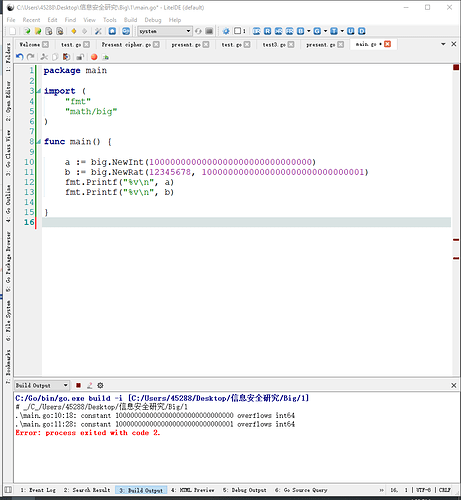Like the picture given illstruate that the big cannot initially set value over int64, but if I want to do it, how can I to achieve it?
I want to randomly initiate the value!
Can you help me to solve it? Thank you!
Tanks for your answer. Firstly, I’m sorry about I don’t correctly raise the question. What I mean is that I want to set a value over uint64, like 9999999999999. How can I initiate the value through type of big
Use the SetString method… to wit:
package main
import (
"fmt"
"math/big"
)
func main() {
i := new(big.Int)
i.SetString("10000000000000000000000000000000000000000000000000000000001", 10) // octal
fmt.Println(i)
}
Not very random.
In my opinion the only true answer for “random value” has been given by @CurtGreen in How can I initialy set a random value over uint 64 through adopting big type - #5 by CurtGreen
Indeed! Perhaps OP found the oddness of the receiver confusing… a complete example at Go Playground - The Go Programming Language
For convenience:
package main
import (
"fmt"
"math/big"
"math/rand"
)
func main() {
n := new(big.Int)
n.SetString("10000000000000000000000000000000000000000000000000000000001", 10)
src := rand.NewSource(10000001)
rdm := rand.New(src)
x := new(big.Int)
bigrand := x.Rand(rdm,n)
fmt.Printf("n=%v\n", n)
fmt.Printf("x=%v\n", x)
fmt.Printf("bigrand=%v\n", bigrand)
}
1 Like
